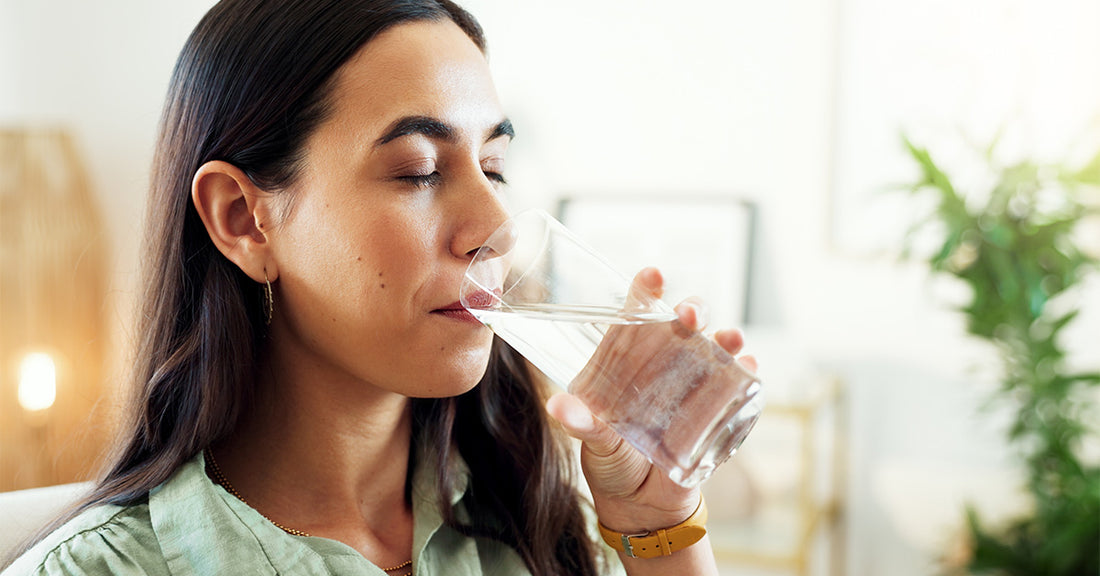
The Connection Between Hydration and Incontinence: Finding the Right Balance
Share
Hydration plays a critical role in overall health, but for individuals managing incontinence, it can be tricky to find the right balance. Many people believe that limiting fluid intake will help reduce bladder leakage, but in fact, dehydration can worsen symptoms. Understanding the relationship between hydration and incontinence is key to managing symptoms effectively without compromising your health. In this blog, we'll explore how to stay hydrated while managing incontinence, debunk common myths, and provide practical tips for finding balance.
Misconceptions About Limiting Fluid Intake
A widespread misconception among people dealing with incontinence is that cutting back on water will reduce the need to urinate. While this may seem like a logical solution, it often backfires. Dehydration can lead to more concentrated urine, which can irritate the bladder lining and worsen bladder control issues. Instead of drastically limiting fluids, learning the best hydration practices for incontinence sufferers can make all the difference. Proper hydration helps maintain bladder health, dilutes urine, and reduces irritation. How dehydration affects bladder control is something every person managing incontinence should be aware of to avoid making symptoms worse unintentionally.
How Much Water Should You Drink?
So, how much water should you drink if you're managing incontinence? The answer will vary depending on factors like age, physical activity, and individual health conditions, but a general guideline is to consume about 6-8 cups of fluids a day. You want to avoid both extremes—overhydrating and underhydrating. For those wondering how to stay hydrated while managing incontinence, consistency is key. Drinking smaller amounts throughout the day, rather than large amounts at once, can reduce bladder pressure and help with symptoms.
Additionally, it’s wise to monitor fluid intake closer to bedtime. Drinking too much liquid before sleep can lead to nighttime incontinence or bedwetting. Reducing fluid intake an hour or two before bed can help reduce overnight bladder activity without risking dehydration.
What Drinks to Avoid
While staying hydrated is important, not all beverages are created equal when it comes to managing incontinence. Certain drinks, like those high in caffeine, alcohol, or artificial sweeteners, can act as bladder irritants, leading to more frequent urination or even bladder leakage. Caffeine and alcohol are diuretics, which increase urine production and exacerbate symptoms for many people managing incontinence. If you’re struggling with bladder control, it’s best to monitor your intake of these fluids and opt for alternatives such as herbal teas or water.
- Best drinks to avoid for bladder control: Caffeinated coffee, sodas, energy drinks, and alcohol.
- Beverage choices for people with incontinence: Opt for water, herbal teas, and non-acidic beverages.
For individuals wondering about the best drinks to avoid for bladder control, sugary sodas, energy drinks, and citrus juices are also commonly known to aggravate symptoms. Making mindful choices about what to drink is a critical step in ensuring hydration strategies for incontinence patients remain effective without worsening bladder health.
Timing Your Hydration
When it comes to hydration, timing can be just as important as what and how much you drink. Avoid consuming large quantities of fluids close to bedtime if you're trying to prevent nighttime incontinence. Instead, aim to drink most of your fluids earlier in the day, allowing your body enough time to process and eliminate excess water before you sleep. If you’re wondering how to prevent nighttime incontinence by controlling hydration, regulating your fluid intake in the evening can significantly help reduce nighttime accidents.
- How to stay dry at night with incontinence: Consume fluids early in the day, tapering off before bed.
- Fluid intake management for overactive bladder: Drink small amounts consistently and avoid large quantities before sleep.
How Hydration Impacts Bladder Health
Hydration plays a crucial role in maintaining bladder health and managing incontinence. Proper hydration helps dilute your urine, which can reduce its irritant properties and lessen the discomfort often associated with frequent urination. When your body is dehydrated, urine becomes more concentrated, which can cause a burning sensation and intensify the urge to urinate, exacerbating symptoms of incontinence.
Maintaining adequate hydration not only helps in diluting urine but also assists in flushing out toxins from your body. This process can help prevent infections, such as urinary tract infections (UTIs), which are a common concern for individuals managing incontinence. Finding the right balance in your fluid intake—drinking enough water to stay hydrated without overwhelming your bladder—is essential for managing symptoms effectively.
Understanding how hydration impacts bladder health can help you make informed choices about your fluid intake, ensuring you support bladder function and reduce discomfort associated with incontinence.
Staying Hydrated Without Overdoing It
Balancing hydration while managing incontinence can seem challenging, but it is achievable with a thoughtful approach. To start, consider tracking your fluid intake. Using a journal or mobile app to monitor how much water you consume and how frequently you need to urinate can reveal patterns that help you adjust your hydration habits. For instance, if you find that consuming certain beverages or drinking too much fluid in the afternoon leads to bladder leaks, you can make adjustments to your intake routine.
For individuals managing an overactive bladder or those concerned about hydration practices, especially during physical activity or hot weather, it’s crucial to drink fluids regularly but in a mindful manner. Instead of gulping large amounts of water at once, aim to sip throughout the day. This approach helps maintain hydration without overwhelming your bladder.
By managing your fluid intake thoughtfully—tracking what you drink, avoiding large volumes at once, and adjusting based on your activity levels—you can support your hydration needs while minimizing the risk of triggering bladder leakage. This balanced approach ensures you stay hydrated without adding unnecessary stress to your bladder.
Hydration and Nutrition: A Balanced Approach
In addition to drinking water, it’s important to consume foods with a high water content. Fruits and vegetables like cucumbers, watermelon, and oranges are not only hydrating but provide essential vitamins and minerals that support overall health, including bladder function. Pairing hydration with the right nutrition can further enhance bladder health, allowing you to manage incontinence more effectively.
By making smart choices with both beverages and food, you can ensure that your body gets the hydration it needs without causing unnecessary bladder irritation.
Conclusion: Finding the Right Balance
Managing hydration when living with incontinence doesn’t have to be complicated. Understanding how proper hydration impacts bladder health is key to improving both comfort and bladder control. Rather than cutting back on fluids completely, focus on drinking water steadily throughout the day, avoiding common bladder irritants, and keeping track of your intake.
For those seeking additional help with managing nighttime incontinence, investing in high-quality incontinence products that offer superior absorbency can make a significant difference. Products like TREST Elite Briefs, with their exceptional moisture-wicking capabilities, help you stay dry and comfortable, even during sleep. These briefs are specifically designed for individuals seeking how to prevent bedwetting in adults or simply looking for reliable nighttime protection.
By finding the right balance in hydration and using the best available products, you can manage your incontinence effectively without sacrificing your overall health and well-being.
